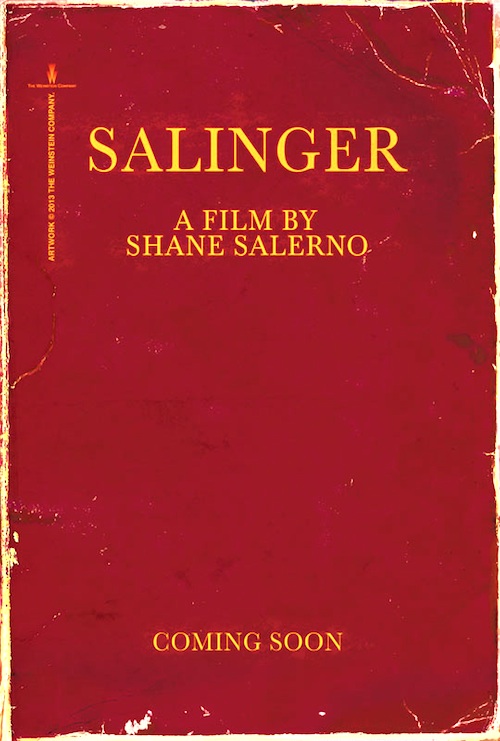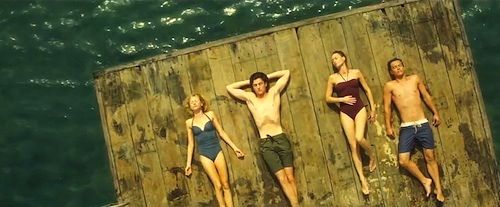By Joe Bendel. There will be no movie adaptations of The Catcher in the Rye. The terms of J.D. Salinger’s literary trust are quite clear on that score. However, the eagerly anticipated documentary profile of Holden Caulfield’s creator might be the next closest thing, considering how legions of admirers often intimately intertwine the character with Salinger. Shane Salerno takes a remarkably even-handed look at the reclusive author and the events that shaped his life in the simply titled Salinger, which opens tomorrow in New York.
Essentially, most of what you have heard is true. Salinger did not stop writing in 1965. In conjunction with the documentary’s publicity campaign, news of five new Salinger works to be published beginning in 2015 has already been released. Yes, readers might recognize some of the characters, but there is still more to Salinger the man and the film than that.
There are two main threads to Salerno’s years-in-the-making documentary. One explores Salinger the recluse, arguing the author knowingly fueled the mystique that surrounded his withdrawal from public life. Concurrently, Salerno also documents Salinger’s life, including his formative years spent in the army during WWII. Experiencing D-Day, the liberation of Dachau, and the de-nazification campaign, Salinger saw real horrors that he never shook off.
 To his credit, Salerno never seeks to defend or condemn Salinger. He simply explains. Given the context of his military experience and painful early romances, viewers can better understand how Salinger became such a figure of thorny complexity. By the same token, Salerno never excuses Salinger’s more problematic behavior, such as his history of pursuing highly impressionable and considerably younger women (girls, really), only to treat them with cool detachment once they commenced a relationship.
To his credit, Salerno never seeks to defend or condemn Salinger. He simply explains. Given the context of his military experience and painful early romances, viewers can better understand how Salinger became such a figure of thorny complexity. By the same token, Salerno never excuses Salinger’s more problematic behavior, such as his history of pursuing highly impressionable and considerably younger women (girls, really), only to treat them with cool detachment once they commenced a relationship.
Despite the paucity of Salinger photos and video, Salerno constructs a fully balanced, multi-dimensional portrait of the author. He incorporates scores of talking head interviews, but most participants are heard from only briefly. However, Salinger’s former companions (or what have you) Joyce Meynard and Jean Miller have sufficient time to tell their very personal stories. Yet, perhaps the best sequences involve Salinger’s army buddies, with whom he remained on good terms throughout his life.
There are some over stylized flourishes to Salinger, but the early caper-like sequences capturing the attempts of both fans and journalists to track down the elusive writer effectively establish a mysterious mood, thereby setting the stage for the revelations to follow. Always highly watchable, Salerno’s Salinger never feels like it is trying to lead viewers to make any sort of conclusion regarding its subject. Informative and entertaining, Salinger is recommended both for fans of the author and those who appreciative a real life literary tale with a few twists. It opens tomorrow (9/6) in New York at the Angelika Film Center.
LFM GRADE: B
Posted on September 5th, 2013 at 9:15pm.

